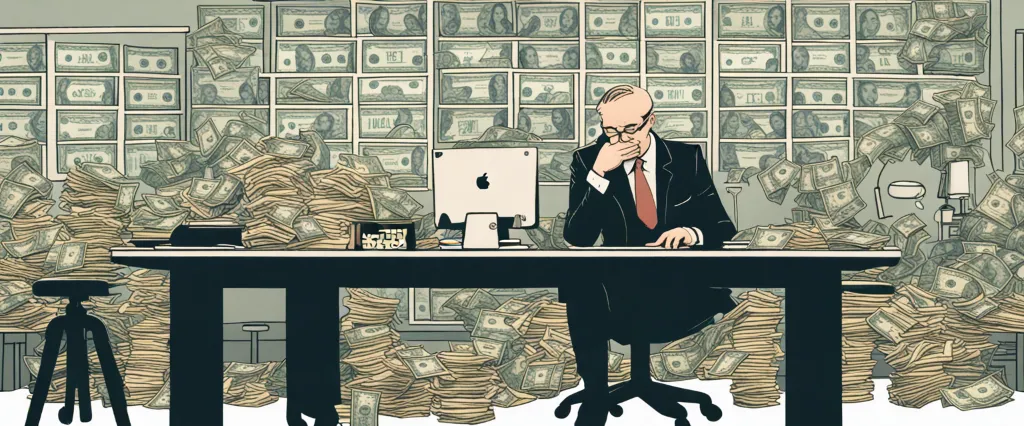
Economics, as a discipline, seeks to unravel the complexities of human behavior in the realm of resource allocation and decision-making. It serves as a guiding light for policymakers, businesses, and individuals striving to understand and navigate the intricate web of economic transactions that shape our societies. Two notable works that aim to shed light on these fundamental principles are Basic Economics by Thomas Sowell and Poor Economics by Abhijit V. Banerjee.
In this comparative study, we embark on a journey to explore the insightful analyses offered in these two influential books. Both Sowell and Banerjee delve into the realm of economics, addressing the persistent inequalities and overarching challenges faced across various societies and economic systems. While their perspectives might initially appear divergent, a closer examination reveals that both authors advocate for sustainable solutions to alleviate poverty and foster inclusive growth.
Basic Economics, penned by renowned economist Thomas Sowell, presents a comprehensive yet accessible examination of economic principles, policies, and theories. Sowell provides readers with a strong foundation for understanding the workings of economic systems, emphasizing the importance of market mechanisms in achieving efficient outcomes. The book delves into the intricacies of supply and demand, market competition, and the consequences of government intervention. Sowell’s arguments pivot on the belief that allowing market forces to operate freely can lead to overall societal prosperity, while heavy-handed government interventions often result in stifling economic growth.
On the other hand, Poor Economics by Abhijit V. Banerjee, a celebrated economist and recipient of the Nobel Memorial Prize, challenges conventional wisdom by approaching poverty from a fresh perspective. Banerjee, along with co-author Esther Duflo, introduces readers to the intricacies of poverty economics, employing a comprehensive array of empirical research and case studies from across the globe. Their groundbreaking work takes a practical approach, examining the impact of specific interventions in combating poverty, such as microfinance and conditional cash transfers. Banerjee argues that addressing poverty requires a nuanced understanding of the unique contexts in which individuals find themselves, and the efficacy of policies must be rigorously tested to maximize impact.
While the overarching goals of both books converge on the notion of alleviating poverty and fostering economic development, the contrasting approaches employed by Sowell and Banerjee invite an engrossing comparative analysis. Sowell’s emphasis on free markets and limited government intervention stands juxtaposed against Banerjee’s advocacy for targeted policies and localized interventions. By examining the theoretical frameworks, empirical evidence, and practical implications put forth by both authors, we can gain a holistic understanding of economic principles and how they translate into tangible outcomes.
Through this comparative study, we aim to unravel the thematic similarities, ideological disparities, and policy recommendations proposed by Sowell and Banerjee. By doing so, we hope to highlight the foundation, usefulness, and contemporary relevance of their respective works in shaping economic ideologies and policy prescriptions.
In subsequent chapters, we will delve into the theoretical underpinnings, empirical evidence, and policy recommendations advocated by Sowell and Banerjee, dissecting their arguments and assessing the strengths and weaknesses of their perspectives. Ultimately, this study aims to contribute to the ongoing discourse surrounding poverty, development, and the role of economics in shaping societies for the better.
Brief Summary of Two Books
Basic Economics by Thomas Sowell
“Basic Economics” by Thomas Sowell is a comprehensive and accessible guide that seeks to explain the fundamental principles and concepts of economics. The book explores numerous economic topics including supply and demand, prices, incentives, market systems, and government policies.
Sowell provides readers with a clear understanding of how the market economy functions and why it is more efficient and productive compared to command economies. He examines the effects of government interventions, regulations, and minimum wage laws on the economy, shedding light on their unintended consequences.
Throughout the book, Sowell emphasizes the importance of rational decision-making and the understanding of trade-offs. He challenges popular misconceptions about economics and presents a systematic analysis of economic principles, supported by historical examples and empirical evidence.
Additionally, Sowell tackles topics like international trade, tax policies, and the impact of economics on various social groups, highlighting how economic decisions and policies can have both positive and negative consequences on individuals and societies.
Overall, “Basic Economics” provides readers with a comprehensive foundation in economics and equips them with the tools to critically analyze and understand economic matters in everyday life.
Poor Economics by Abhijit V. Banerjee
Poor Economics: A Radical Rethinking of the Way to Fight Global Poverty, written by Abhijit V. Banerjee and Esther Duflo, provides a comprehensive analysis of global poverty and offers new insights on how to alleviate it.
The book challenges traditional assumptions about poverty and presents rigorous research conducted by the authors, who are both renowned economists. Banerjee and Duflo argue that poverty is not a result of laziness or lack of ambition, but rather a complex combination of social, economic, and political factors that trap individuals and communities in a cycle of deprivation.
By studying various poverty-stricken regions around the world, the authors examine specific mechanisms that perpetuate poverty, such as ineffective institutions, limited access to education and healthcare, gender inequality, and the absence of reliable financial systems. They also explore the misconceptions surrounding poverty, debunking myths that the poor are unable to make rational decisions or are solely motivated by short-term gains.
Grounded in numerous experiments and data-driven research, Poor Economics proposes practical and innovative solutions to address global poverty. The authors emphasize the importance of tailored interventions based on a deep understanding of local contexts, advocating for evidence-based policies that prioritize incremental changes and incremental progress. They advocate for policies such as conditional cash transfers, microcredit programs, and improved access to education and healthcare, all aimed at empowering individuals and communities to escape the poverty trap.
Furthermore, Banerjee and Duflo highlight the need for careful evaluation and rigorous analysis of anti-poverty programs to ensure optimal impact and long-term success. Through randomized control trials and other rigorous research methods, they challenge the effectiveness of some well-established programs and call for the adoption of a more scientific approach to poverty reduction.
Overall, Poor Economics challenges readers to rethink their preconceived notions about poverty and offers a fresh perspective on fighting global poverty through evidence-based policies and interventions.
Comparison between Two Books

Similarities in Economics
While Basic Economics by Thomas Sowell and Poor Economics by Abhijit V. Banerjee approach the subject from different perspectives, there are some similarities in their analyses of economics.
1. Focus on Poverty: Both books recognize the significance of poverty in the economic landscape. Basic Economics explores the implications of poverty in relation to economic policies and systems, while Poor Economics concentrates specifically on studying the behavior of the poor and the effectiveness of various anti-poverty programs.
2. Emphasis on Empirical Evidence: Both Sowell and Banerjee heavily rely on empirical evidence to support their arguments. Basic Economics utilizes economic data and historical examples to demonstrate cause-and-effect relationships in the realms of taxation, regulation, and government intervention. Poor Economics, on the other hand, conducts randomized control trials and field experiments to examine the impact of specific policies on poverty alleviation.
3. Skepticism towards Central Planning: Both authors question the effectiveness of centralized economic planning and advocate for market-oriented solutions. While Sowell advocates for limited government intervention and champions the free market, Banerjee and his co-author, Esther Duflo, explore how bottom-up approaches, driven by the needs and behaviors of individuals, can lead to more effective poverty reduction measures.
4. Analysis of Incentives: Both books delve into the role of incentives in economic decision-making. Basic Economics highlights the importance of understanding how incentives shape individual behavior and market outcomes, while Poor Economics investigates how incentives can be designed to improve the impact of anti-poverty programs and policies.
5. Comprehensive Approach: Both authors aim to provide a comprehensive understanding of economics and challenge conventional wisdom. Sowell’s Basic Economics covers a wide range of economic concepts and principles, aiming to educate readers on the fundamental principles underlying economic systems. Banerjee’s Poor Economics adopts a similarly comprehensive approach by challenging preconceived notions about poverty and offering alternative perspectives on its causes and potential solutions.
Despite these similarities, it is crucial to note that the authors have distinct viewpoints and divergent policy prescriptions. Sowell tends to advocate for a more limited government role in the economy, while Banerjee’s work often explores the potential benefits of government intervention and targeted policies.
Divergences in Economics
Basic Economics by Thomas Sowell and Poor Economics by Abhijit V. Banerjee are two notable books that provide different perspectives on economics. While Sowell’s book focuses on the principles of free-market economics and the importance of individual decision-making, Banerjee’s book delves into poverty economics, examining the complexities of poverty and the impact of interventions.
One major divergence between these books lies in their ideological orientations. Sowell’s Basic Economics advocates for free-market capitalism, emphasizing the importance of limited government intervention in economic activities. He argues that market forces and individuals making rational choices lead to more efficient outcomes for society as a whole.
On the other hand, Poor Economics by Banerjee leans towards a more interventionist perspective. Banerjee and his co-author Esther Duflo, both Nobel laureates in economics, focus on the impact of poverty and explore small-scale interventions that can be effective in alleviating poverty. They argue that social policies and targeted interventions can help address the complex challenges faced by individuals living in poverty.
Another divergence is the scope of their analysis. Sowell’s Basic Economics provides a comprehensive overview of economic principles, covering topics such as supply and demand, prices, taxes, labor markets, and international trade. It seeks to provide readers with a thorough understanding of the economic principles that underpin market systems, making it relevant for both students and general readers.
Conversely, Poor Economics by Banerjee focuses primarily on the study of poverty and the evaluation of specific interventions. The book delves into case studies and experiments conducted in developing countries, exploring the impact of policies like microfinance, education subsidies, and healthcare programs on poverty reduction. It aims to shed light on the complexities of poverty, challenging conventional wisdom and offering new insights into poverty economics.
Overall, the divergence between these books lies in their ideological orientation, scope, and focus. While Basic Economics by Sowell advocates for free-market principles and provides a broad understanding of general economic principles, Poor Economics by Banerjee focuses more narrowly on the issues of poverty and the impact of interventions at the micro level. Nevertheless, both books contribute valuable perspectives to the field of economics, offering readers different lenses through which to analyze economic phenomena.

Conclusion
Both “Basic Economics” by Thomas Sowell and “Poor Economics” by Abhijit V. Banerjee are highly regarded books in the field of economics, but they approach the subject from different perspectives.
“Basic Economics” by Thomas Sowell is a comprehensive introduction to economics. It offers a conservative and free-market-oriented perspective on various economic issues. Sowell explores fundamental economic principles, such as supply and demand, prices, government intervention, and international trade. If you are interested in gaining a solid understanding of traditional economic theory and its application to real-world scenarios, “Basic Economics” is a worthy choice.
On the other hand, “Poor Economics” by Abhijit V. Banerjee takes a more nuanced approach to economics and focuses on poverty and development. Banerjee, a Nobel laureate, and his co-author Esther Duflo examine the lives of the poor and provide insights into their challenges and behaviors. They demonstrate how rigorous experimentation and evidence-based approaches can be used to improve the lives of people in poverty. If you are interested in learning about poverty alleviation programs and the latest research in the field, “Poor Economics” is a great option.
Choosing between the two books depends on your specific interests and goals. If you prefer a conservative perspective and want to understand the broader concepts of economics, “Basic Economics” is a better choice. However, if you are specifically interested in poverty and development, and prefer a more empirical and experimental approach, “Poor Economics” would be more suitable.


